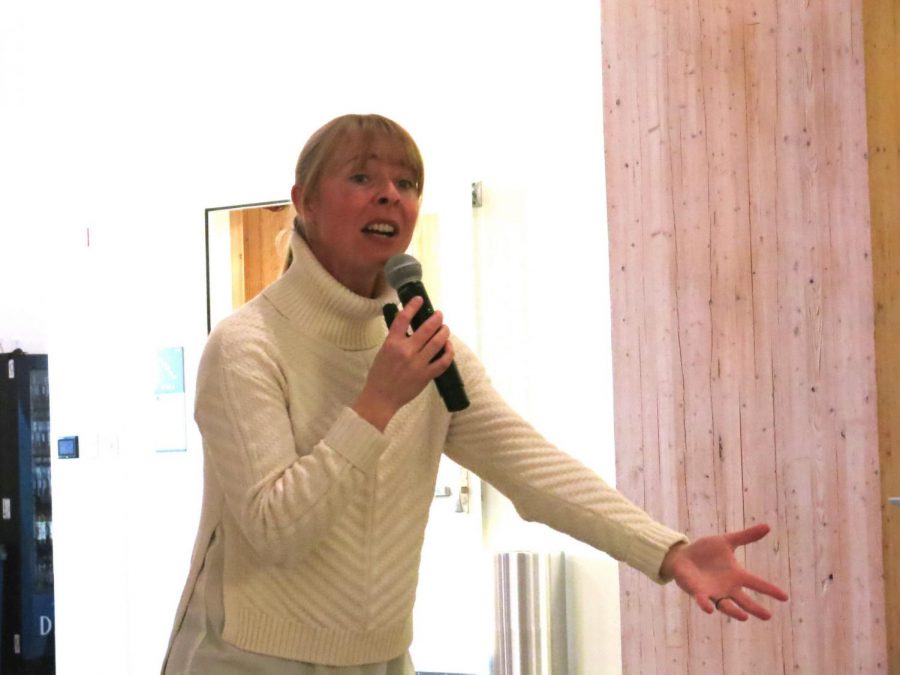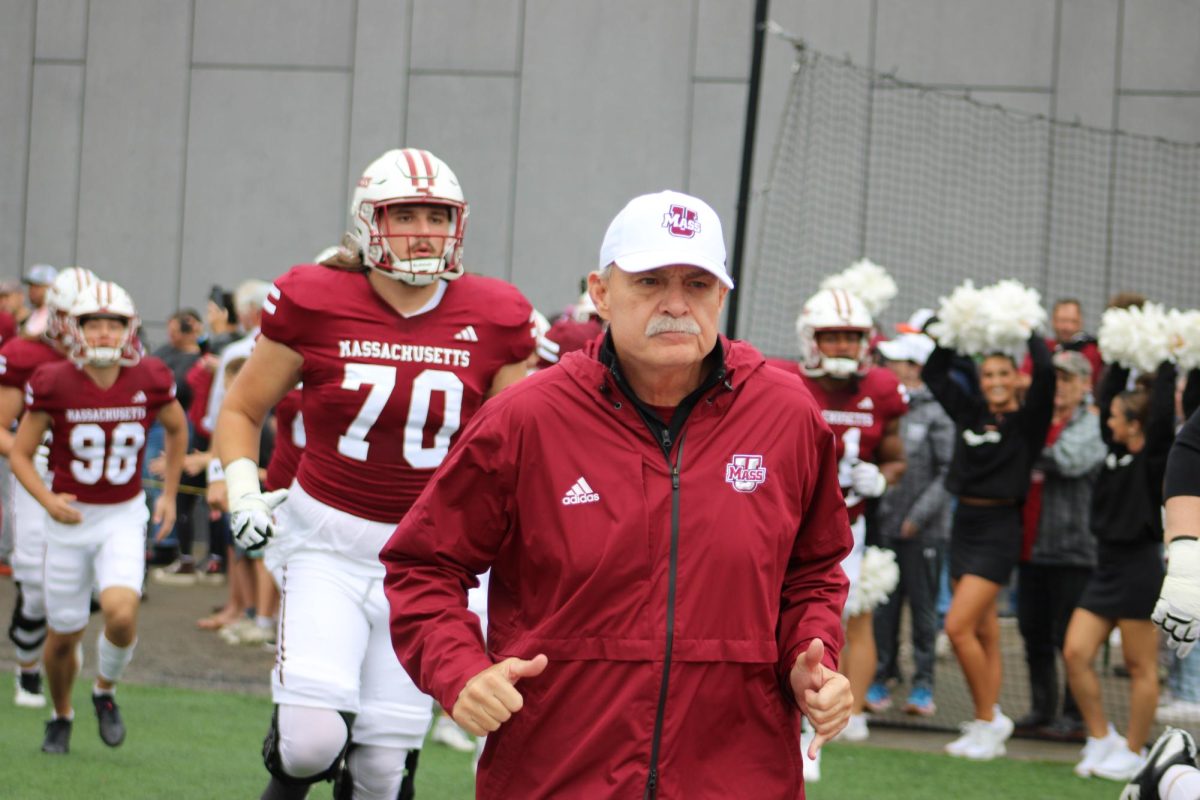To kick off the 2018 Erv Zube Lecture Series, Claudia West posed the question of how society should combine plants and architecture to inspire the public.
The first Zube lecture on Thursday, January 25, was held in the Olver Design Building at the University of Massachusetts. It was titled “Wild and Neat: Bridging the Gap between Great Planting Design and Ecology.” The seminar filled up quickly with students and faculty, crowding the atrium of the Design Building.
West is the co-founder of Phyto Studio, a landscape architecture firm. West and two of her longtime friends, Melissa and Thomas Rainer, are becoming leaders in the emerging field of ecological landscape design; their goal is aimed at “crafting artistic and technical solutions for the next green revolution: the creation of the plant-covered city,” as stated on their website.
Sarah Welch, a second-year graduate student in the landscape architectural program at UMass, said that she is “excited about [West’s] work.”
Welch went on to say that West’s work is something that she hopes to replicate in her own way in the future.
“She articulated that role for me,” Welch said about West’s work.
During the lecture, West told the audience that the main inspiration for her work is her love of plants. Thousands of species of plants that most Americans would see as weeds, West sees as potential “designs that inspire and re-connect you to nature.”
“Native U.S. plants get a bad reputation for being weeds, not garden-worthy, wild and unsophisticated,” she said.
West believes there is an environmental issue with how cities are designed with limited ecological plans devoted to them. This has caused extensive damage to ecosystems, with half of the world’s population living in cities. By 2030, two-thirds of the world will be living in cities, according to West.
West traveled to the United States from Germany when she was 18 years old. One of the main reasons for her leaving was her interest in U.S. flora. However, when she arrived, she was left feeling deflated about how these plants were misused or not used at all. Since she couldn’t afford a plane ticket home, she devoted her life “to brighten[ing] the world,” West said.
According to West, when it comes to architectural landscape, it’s hard to “combine beautiful natural landscape to a household or business setting.”
She followed up by saying that taking the “scale” of an area into account and trying to blend it with natural landscape can make it quite “cluttered.” The main idea, according to West, is to evolve cities across the country to develop more vegetation in urban areas, to avoid stripping nature from the world.
To capture the cosmic beauty that is ingrained in parts of the country, people have to “amplify the visual essence,” West said. In doing this, some biodiversity may be lost within your design, noted West.
After the seminar concluded, West met with others in the architecture landscape program for refreshments and questions. West sold and signed copies of her book, “Planting in a Post-Wild World: Designing Plant Communities for Resilient Landscapes.”
Ben Breger, a second-year graduate student in the landscape architecture program, said West’s book is “the bible for eco design.”
The next Zube lecture in the series will be held Feb. 1 from 4 to 5 p.m. in the atrium of the Olver Design Building, where Clara E. Irazábal-Zurita will present her seminar entitled “The Counter Land Grabbing of the Precariat: Housing Movements and Restorative Justice in Brazil.”
Travis Barrett can be reached at [email protected].



















